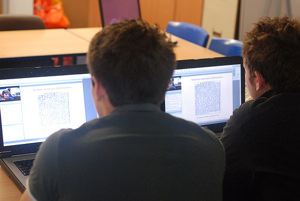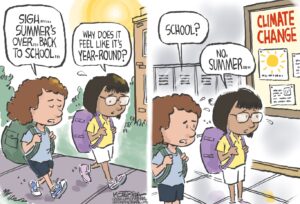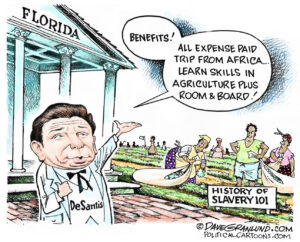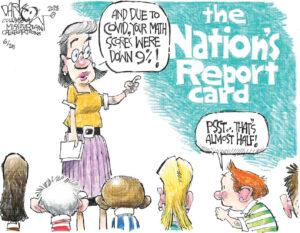Jeb Bush’s Digital Drive Against Public Schools
Former Florida Gov. Jeb Bush is leading the bipartisan push to digitize American education. In and out of office, he’s helped develop a national model that funnels taxpayer funds to private companies, sucker punches public employees and unions and sets him up for election as a champion of education reform.
Former Florida Gov. Jeb Bush is leading the bipartisan push to digitize American education. In and out of office, he’s helped develop a national model that funnels taxpayer funds to private companies, sucker punches public employees and unions and sets him up for election as a champion of education reform.
Or, as the Mother Jones article below sarcastically asks: “Is the former Florida governor’s online-education advocacy: A) a stealth attack on teachers’ unions; B) presidential positioning; C) an effort to divert public money to private corporations; D) all of the above?”
Survey the virtues–or lack thereof–of virtual schooling below and you be the judge. –ARK
Your support matters…Mother Jones:
Virtual schools work very much like voucher systems. In most states, these schools receive per-student funding that would normally go to a student’s home district. This can wreak havoc on public school budgets—which, to Bush and others working to privatize elements of the education system, may be exactly the point. In a December interview with Nick Gillespie, editor of the libertarian magazine Reason, Bush said he sees digital learning as “a transformative tool to disrupt the public education system, to make it more child-centered, more customized, more robust, more diverse, more exciting.” He told National Review two months later that “the unions see [digital learning] as an even bigger threat than vouchers because it’s such a disruptive idea.”
… As it stands, in many virtual schools, students rarely hear from their teachers. At the Insight School of Wisconsin, which was recently purchased by K12, students need only sign in to the school website and/or communicate with a teacher once every three days to prove they’re actually attending. A state legislative audit found that 16 percent of the virtual teachers surveyed had contact with individual students as little as three times a month. At one point, K12 even outsourced paper-grading to a contractor in India.
Independent journalism is under threat and overshadowed by heavily funded mainstream media.
You can help level the playing field. Become a member.
Your tax-deductible contribution keeps us digging beneath the headlines to give you thought-provoking, investigative reporting and analysis that unearths what's really happening- without compromise.
Give today to support our courageous, independent journalists.









You need to be a supporter to comment.
There are currently no responses to this article.
Be the first to respond.